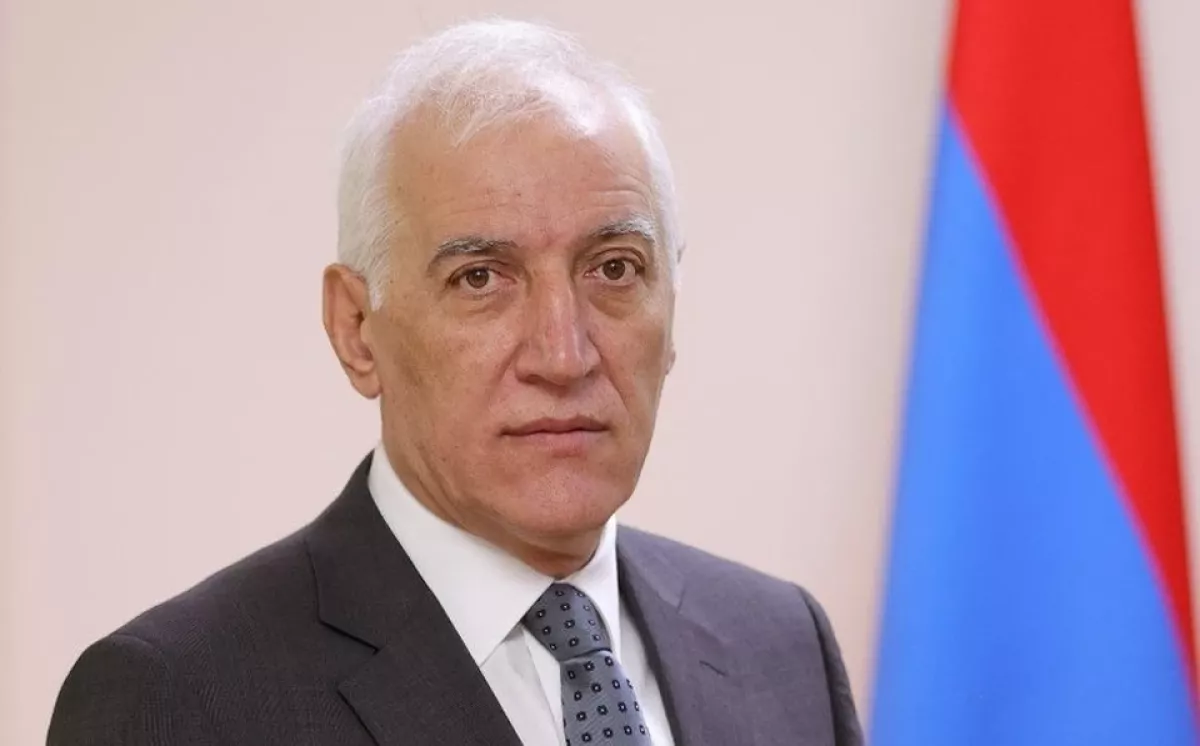Equality on Moscow’s terms Armenia does not want to be the “junior partner”
Armenian President Vahagn Khachaturyan’s statement that Yerevan’s relations with Moscow have taken on a “partner-like” character and no longer fit the “elder brother–younger brother” formula may, at first glance, appear as a declaration of the country’s foreign policy maturity. However, upon closer examination, it becomes evident that this is more likely a case of wishful thinking than a sober assessment of reality.
Formally, Armenia has been considered an independent state for over three decades, yet many aspects of its sovereignty remain seriously in question. For instance, a Russian military base is still located in Gyumri, Armenia. It is widely known that the presence of a foreign military base is always a sign of dependence. In this case, it also underscores that, in Moscow’s eyes, Armenia continues to play the role advantageous to the Kremlin. Therefore, as long as a Russian military base remains on Armenian soil, any claims of a symmetric relationship with Russia sound, to put it mildly, premature.
Equally telling is the situation along Armenia’s land borders, where Russian border guards are still present in certain areas.
All of this together means that Armenia has effectively delegated to Moscow some of its core sovereign functions, in particular, the protection of its state borders. Under such conditions, when fundamental elements of national security are entrusted to a foreign state, it is simply impossible to talk about “equality” with that state.
Furthermore, the Armenian president tried to downplay the dependence on Russia by claiming that Moscow is also economically dependent on Armenia. Frankly speaking, these statements sound almost like a joke, since Armenia’s share in Russia’s GDP is negligible, and the trade turnover represents only a small segment of Russia’s foreign economic balance.
For Armenia, in contrast, Russia remains an important partner – a labour market, a sales market, and a source of investment and credit. Therefore, to assert that Russia is “dependent” on Armenia either ignores the statistics or represents a deliberate attempt to embellish reality for a domestic audience.

Particular attention should be paid to President Khachaturyan’s comment regarding Russian Deputy Prime Minister Alexey Overchuk’s statement that Armenia cannot simultaneously move toward the EU and remain in the EAEU: sooner or later, a choice will have to be made. The Armenian president’s response can be seen as an attempt to avoid acknowledging this dilemma:
"Our economy is diversified and not tied to a single direction. We operate within the framework of agreements with the EAEU, while also maintaining economic relations with the European Union. So far, no problems have arisen."
This is precisely a case where a politician deliberately turns a blind eye to the obvious. Attempting to sit on two chairs may bring temporary tactical gains, but strategically it risks a painful crisis.
In defence of Armenia’s current authorities, it can be said that they indeed inherited a difficult political and institutional legacy. Previous Armenian governments deliberately turned the country into a Russian outpost in the South Caucasus, integrating it into every possible mechanism of dependence. But acknowledging this fact does not change the reality.
Let us emphasise once again: as long as the Russian base remains in Gyumri, as long as Russian border guards protect Armenia’s external frontiers, and as long as the Russian market and migration flows determine a significant part of the Armenian economy, speaking of “equality” with Russia is, to put it mildly, premature.
Finally, it is hard to resist posing a somewhat provocative question. In France, Armenia is often referred to as a “sister,” highlighting the special closeness and almost familial bond between Paris and Yerevan. So, would the Armenian president dare to declare just as loudly that Armenia is not a sister at all, but a “fully equal partner” of France?
It seems unlikely. After all, French patronage is perceived by Armenian society not as a humiliation, but as a source of pride. Here lies a paradox: while Moscow is criticised for “paternalism,” French declarations of “sisterhood” are met with gratitude.








